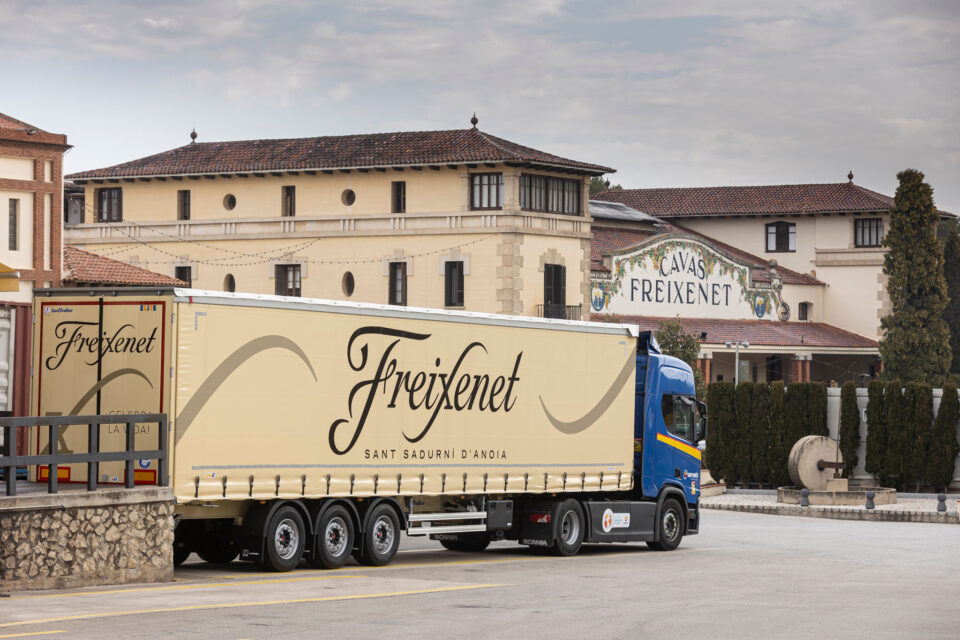Freixenet Group reinforces its leadership in sustainable mobility

Freixenet Group, a world leader in quality sparkling wines, has recently received two important international recognitions for its commitment to sustainability and good practices in transport and logistics. The company has obtained the Responsible Shipper Certification (CCR), which certifies good logistics behaviour and the proper treatment of its workers throughout the supply chain, being the first company in the food and beverage sector to achieve it. In addition, it has received the ‘Private Company – Large Company Award’ at the International Mobility Awards for its sustainable initiatives in intermodal transport and the use of renewable fuel.
The Responsible Shipper Certification (CCR) is the accreditation of good logistics practices carried out by shippers in the field of transport and logistics to accredit their ethical and responsible behaviour. It is powered by TRANSPRIME Spanish Shippers’ Council with the support of the European Shippers’ Council. The Freixenet winery in Sant Sadurní d’Anoia and the group’s logistics centre in Sant Sugat Sesgarrigues (both in Barcelona) have obtained this certification after having implemented a series of measures, such as the creation of designated rest areas equipped with showers, sinks and dining areas or for maintaining fluid communication with carriers, establishing long-term relationships, quickly managing incidents, and conducting continuous reviews to implement improvements. After becoming the first company in the food and beverage sector to obtain this certification, Freixenet Group has reiterated its intention to continue working to achieve the certificate with a degree of Excellence.
This distinction is in addition to the ‘Private Company – Large Company Award’, obtained in the 4th edition of the International Mobility Awards thanks to the Group’s commitment to sustainable transport.
In 2023, the company started an intermodal transport project in Europe, which combines road and rail transport and results in a reduction in CO2 emissions of between 59% and 75% on trips to Germany, Poland and Belgium. In this way, Grupo Freixenet becomes a pioneer in Spain in Cava’s rail transport, given the need to promote and bet on rail as an essential transport option to contribute to the decarbonisation of the sector.
Another project that Grupo Freixenet started in 2023 is the collaboration with the multinational energy company Repsol to contribute to the decarbonisation of freight transport through the use of renewable fuels produced from waste, such as used cooking oil, and which reduces CO2 emissions by 85% compared to the mineral fuel it replaces. Currently, the Freixenet Group makes part of the journeys between its headquarters, located in Sant Sadurní d’Anoia, Barcelona, and Madrid with trucks powered by Repsol’s renewable fuel. By participating in this project, the Freixenet Group achieves a double objective: to decarbonise the economy and to implement circular economy models that reduce its environmental footprint.
Cristina Duran, Director of Logistics at Grupo Freixenet, states that “we are proud that our solid commitment to the logistics sector, aligned with sustainability, is recognized in awards as important as these. This encourages us to continue improving, growing and innovating within the field.”
With these significant achievements, the Freixenet Group consolidates its leadership in good logistics practices and sustainable mobility, reinforcing its position as a key driver in a sector with a clear export vocation.
